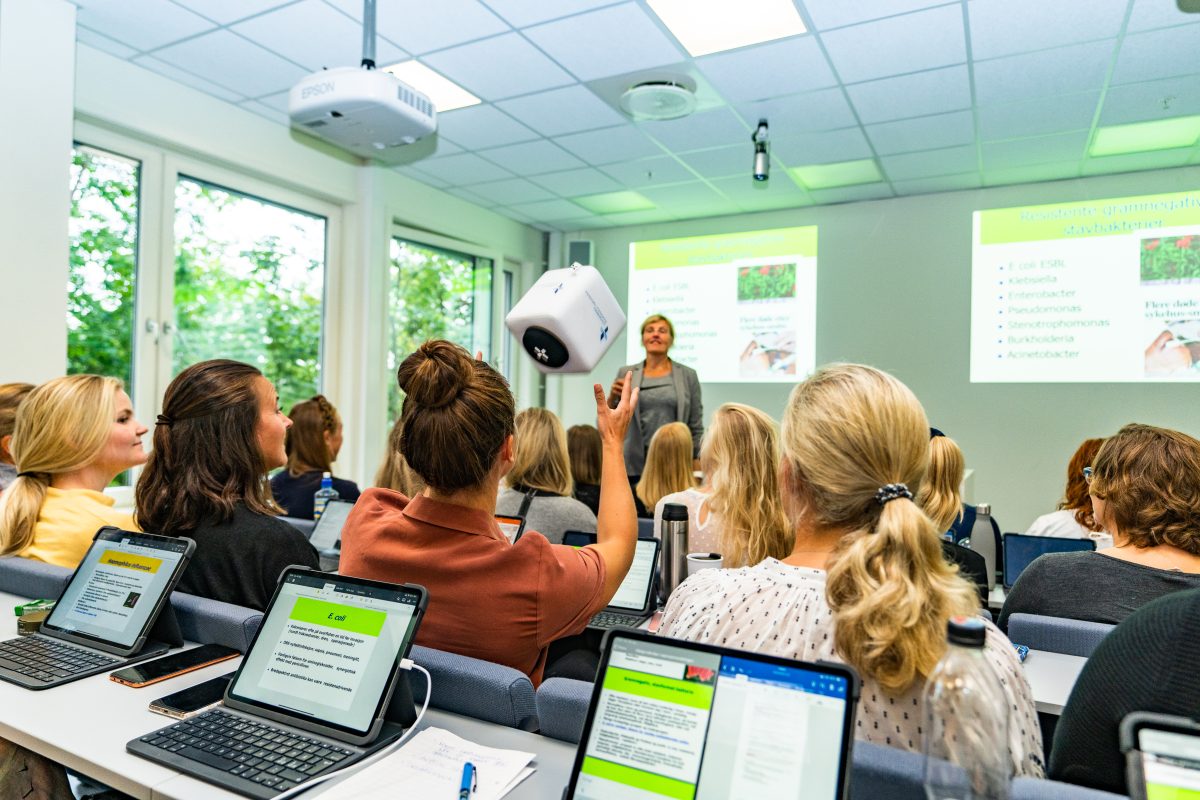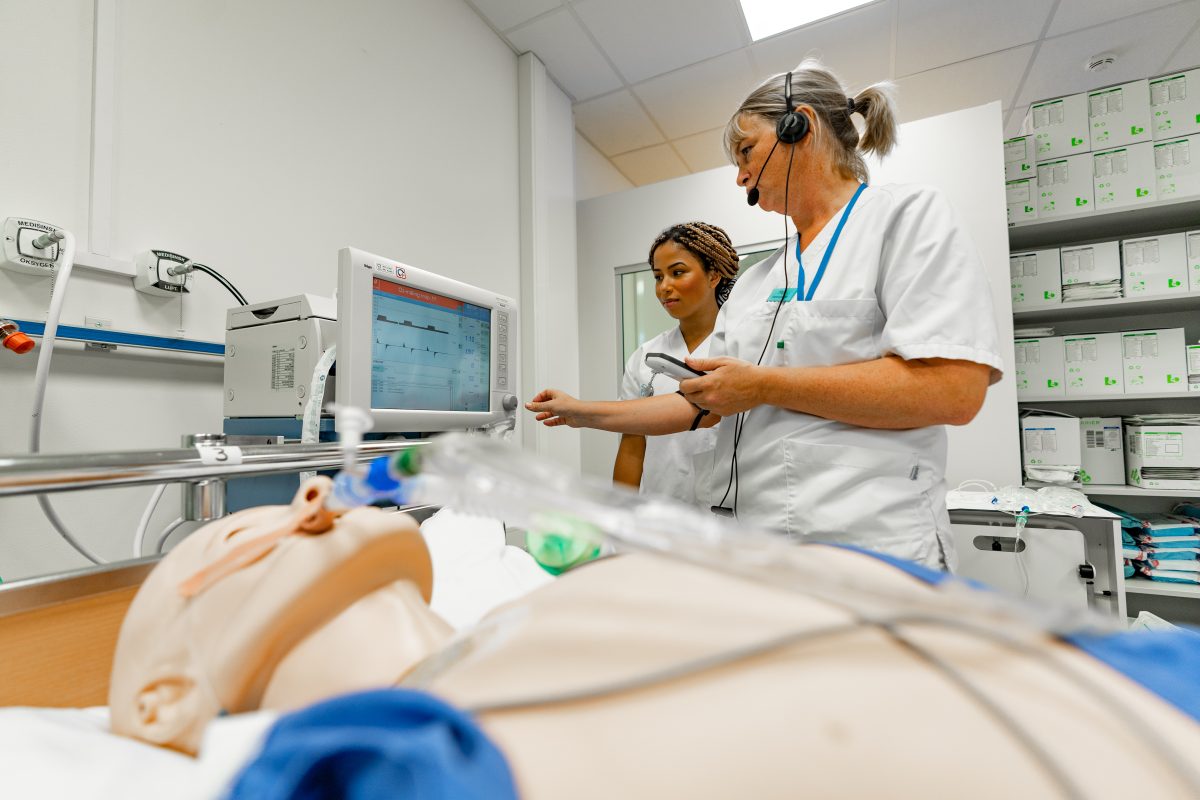Published 16. Mars 2020, 14:07
Last updated 2. November 2023, 12:13
What you will learn
The first two semesters of the course provide basic knowledge and skills pertaining to clinical nursing. You will receive a thorough introduction to medical and scientific terms. During practical study, you will meet patients in stable and diagnosed conditions
During the third and fourth semesters, your competency is developed further in order to meet and provide nursing care for patients who are in danger of developing, or have already developed, acute and critical illness. Practical study takes place in the specialist health service and at hospitals, and you will learn about challenges related, and measures taken, to ensure good, cohesive patient care. The theoretical teaching includes pathology and nursing for acutely and critically ill patients.
During the fifth and sixth semesters, students work on developing independence, extending their knowledge, and assuming roles demanding professional development and leadership. Practical study offers nursing challenges within different fields, mainly within the local public health and care services. Patient groups may be in need of physical and mental health assistance in dealing with complex, lasting, and multifaceted ailments.
Parts of the bachelor course may be completed abroad.

Teaching
The university college views learning as something that largely happens through independent activity and collaboration. The college enables student-active forms of teaching through individual and collective learning processes. You will often use the Clinical Simulation and Skills Lab, where you will hone your practical skills. The teaching and studying methods are meant to stimulate you as a student to seek out knowledge and critically appraise your profession. Most of the teaching is carried out during the day, but there may also be some late afternoon teaching.

Practical study
50% of the course is composed of clinical practice. Students should expect to travel during clinical practice, and practice may take place during late afternoons/evenings. The college is responsible for providing clinical practice study places. The practical study is facilitated with the college’s regular partners within the specialist and local health services in the greater Oslo region, elsewhere in Norway, or in locations abroad where the college has collaboration agreements in place.
What can you do after finishing the course?
With a Bachelor in Nursing, you will be a certified nurse, and can work in both public and private health units. You can work at hospitals, nursing homes, in community nursing, in preventive health services, in public or private medical practices, in corporate health services, in the ambulance service, and for international aid organisations.
After a few years of nursing experience, you can also specialise in specific areas of nursing. LDUC provides several courses in postgraduate programmes, as well as a Masters' programmes.
Click here for an overview of all our courses.
What you need to know about a Bachelor of Nursing
The contents of the Bachelor course amount to 180 course credits in total, i.e. a three-year full-time course equals 30 course credits per semester. The Bachelor in Nursing alternates between theoretical and practical study.
The course is designed to build on acquired knowledge with each consecutive semester. Therefore, you are not finished with the curriculum at the end of the term, but need to use it actively in the next stage of your studies.
We recommend that you take good notes! Cathinka Guldberg was known for her excellent note taking.
.jpg?quality=82)
.jpg?quality=82)